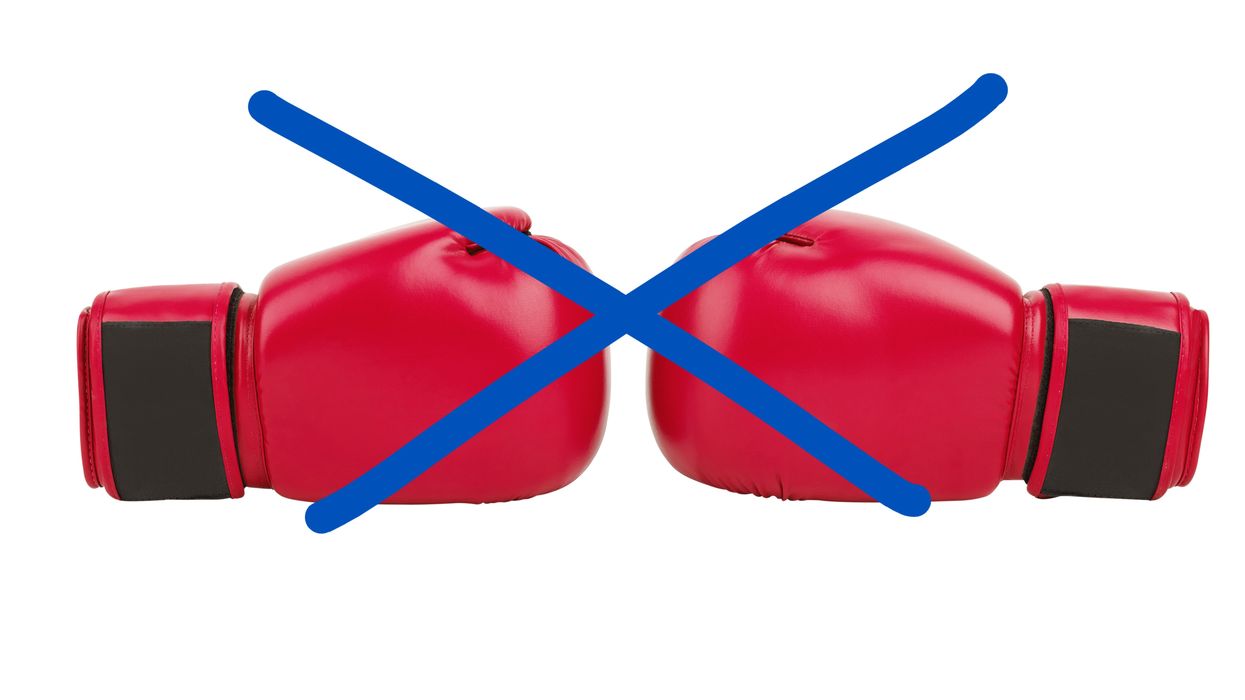Anderson edited "Leveraging: A Political, Economic and Societal Framework," has taught at five universities and ran for the Democratic nomination for a Maryland congressional seat in 2016.
The race for U.S. president is beyond analogy. Accepting that fact will make it easier to follow and influence the election.
The race is certainly not like a boxing or a wrestling match, where two opponents fight it out in a ring. Setting aside the physical manifestation (we don’t have the candidates actually throw punches at one another), there are many reasons this is a poor analogy, notably that there is not one ring. The Electoral College system means that there are races in 50 states and the District of Columbia — 51 “rings” that feature campaigning and voting.
The presidential race is not really like horse racing either, an analogy frequently used when discussing campaigns. A House or Senate race or race for governor works better with the horse racing analogy, but again there are 51 races for president, not one. Beyond the Electoral College issue, there are other problems with standard analogies used.
Is the contest between two presidential candidates and their running mates more like a war? Well, wars are not fought on one battlefield — the Civil War and World Wars I and II were of course all fought on many battlefields. In fact, World War II was basically two wars, one in Europe and North Africa and another in the Pacific Theatre.
So in that sense, the war analogy works, because presidential campaigns are fought state by state. Moreover, wars are stretched over a period of time, and this feature aligns with campaigns and elections. In addition, there is the need to defeat the enemy.
Yet the war analogy breaks down in a very fundamental way: Wars involve thousands, even millions, of soldiers, military leaders and government leaders. Two people running for president and vice president, even with their armies of advisors and volunteers, are trying to defeat two other people running for president and vice president.
To be sure, the war analogy is better than the boxing or wrestling analogy. But it does not give sufficient emphasis to the two leaders of the effort: the candidates. Franklin D. Roosevelt and Gen. Dwight Eisenhower were not fighting World War II, even though they were our principal leaders in the European/North African parts of the war. They were, however, undoubtedly leading the effort for the United States and the Allies.
The war analogy, though interesting, is strained. It really diminishes the role of thousands — millions — of soldiers and officers who actually fight the battles in the land, sea and air.
When you factor in the role of donors as well as traditional and social media, it remains impossible to find a good analogy.
Accepting this reality might help citizens as well as the candidates and the cognoscenti approach the race more clearly. The chief benefit might be liberating our thinking, and feeling, so that we don't try to conceptualize the race in simplistic terms — as if it were a boxing match or multi-level chess game or even a war.
Why liberate our thinking and feeling? Because the standard metaphors and analogies limit our imagination. They take extremely complex phenomena and impose a narrow conceptual framework on top. Looking at a presidential race as a boxing match, for example, dismisses the reality of what kind of contest this is. A more expansive analogy or none at all would encourage citizens, the media and those campaigning for a candidate to have a more nuanced, integrative approach to the race.
Moreover, it would discourage the pundits from analyzing the race based on a narrow basis of data that reflects an analogy that distorts the complexity of the reality of the campaign itself. The truth is that the race, taken as a whole, is not like anything.
What other country has an Electoral College? The Founding Fathers threw a wrench into our politics that they thought would make the election fair as well as remove it from the average voters, whom they did not wholly trust. Only in America is there a political contest that cannot be compared to anything.



















 From left to right: Gabriel Cardona-Fox, Bud Branch, Joe Concienne
From left to right: Gabriel Cardona-Fox, Bud Branch, Joe Concienne 
Trump & Hegseth gave Mark Kelly a huge 2028 gift